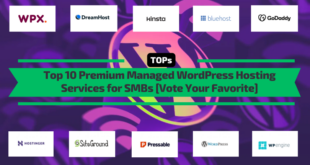Una dintre întrebările cu care se confruntă adesea oamenii care doresc să devină antreprenori este dacă ar trebui să înceapă o afacere originală sau doar să cumpere o franciză.
Ambele metode au avantajele și dezavantajele lor, dar nu este la fel de ușor să le priviți pe toate sau chiar să le comparați dacă nu aveți cunoștințe aprofundate despre subiectul în cauză.
Prin urmare, există primele 10 întrebări pe care fiecare potențial proprietar de franciză trebuie să le pună înainte de a intra în lumea afacerilor.
Doar astfel vei putea spune cu certitudine că cumpărarea unei francize este alegerea potrivită.
Cuprins
- 1 #1 – Costuri de pornire
- 2 #2 – Strângere de fonduri
- 3 #3 – Teritoriu
- 4 #4 – Achiziția de materii prime
- 5 #5 – Industria potrivită
- 6 #6 – Negocieri
- 7 #7 – Cercetează-le istoria
- 8 #8 – Știind ce este nevoie
- 9 #9 – La ce fel de ajutor te poți aștepta?
- 10 #10 – Care sunt obiectivele tale finale?
- 11 În concluzie
#1 – Costuri de pornire
Primul lucru pe care trebuie să-l știți atunci când cumpărați o franciză este faptul că costul tinde să fie mai abrupt decât începerea propriei afaceri. Acest lucru, totuși, este de obicei corect dacă nu trebuie să începeți de la zero.
Atunci când începeți propria afacere, probabil că veți putea începe într-un mod puțin mai modest, totuși, aceasta înseamnă că va trebui să vă dezvoltați propriul model de afaceri, să testați practicile de afaceri și multe altele. În acest fel, aveți privilegiul de a sări peste toți acești pași esențiali (dar evitabili).
Când vine vorba de a face o estimare bugetară, există mai mulți factori de luat în considerare. În primul rând, trebuie să închiriezi un imobil pentru a-ți acționa ca sediu și s-ar putea să fii obligat să modifici clădirea pentru a îndeplini standardele stabilite de francizor.
Gândește-te bine, nu poți începe o franciză McDonald's într-o baracă și alte francize caută și numele mărcii lor.
În continuare, trebuie să te ocupi de inventar, să gestionezi statul de plată și să plătești utilitățile pe cont propriu. În sfârșit, să nu uităm de ce ești acolo, motiv pentru care trebuie să te gândești și la propriul salariu.
#2 – Strângere de fonduri
Când vine vorba de strângere de fonduri, este mult mai ușor, deoarece ratele de succes în industria francizelor sunt substanțial mai mari. Acesta este motivul pentru care creditorii privesc de obicei mai favorabil pe cei care primesc un împrumut pentru a începe o franciză.
Mai mult, atunci când solicitați credit, probabil vi se va cere să demonstrați planul dvs. de afaceri, care constă în modelul dvs. de afaceri.
Când cumpărați o franciză, moșteniți deja un model de afaceri. Devine și mai bine, văzând cum s-a dovedit că funcționează acest model de afaceri. În general, încercările tale de strângere de fonduri devin considerate mult mai eficiente.
De asemenea, ar trebui să rețineți că francizorul însuși poate oferi niște fonduri suplimentare pentru a vă ajuta să vă configurați. Cel mai important, totuși, trebuie să înțelegeți faptul că suma de bani de care aveți nevoie depinde de franciza pe care o cumpărați.
Înființarea unui atelier de mecanică te-ar costa probabil o sumă modestă, în timp ce, atunci când mergi pentru o marcă importantă precum McDonald's menționat mai sus, probabil că ai avea nevoie de cel puțin 500.000 USD în active lichide pentru a începe . Taxa de franciză în sine este de aproximativ 45.000 de dolari, dar investiția medie variază adesea între unu și două milioane de dolari.
#3 – Teritoriu
Unul dintre principalele beneficii ale achiziționării unei francize constă în faptul că primești garanția că nu vor mai exista alte restaurante cu aceeași franciză pe acel anumit gazon. Motivul pentru care acest lucru este atât de important se datorează faptului că elimini imediat unele dintre cele mai dure competiții pe care le-ai fi avut.
De exemplu, planificarea de a începe propriul lanț de restaurante fast-food este mult mai dificilă dacă cineva începe o franciză McDonald's (pentru a folosi acest exemplu cel puțin o dată) în cartierul tău câteva luni mai târziu.
Acest scenariu este chiar mai problematic decât credeți, având în vedere modul în care le-ar permite concurenților dvs. să folosească unele dintre avantajele pe care le-am discutat anterior împotriva dvs.
Cu alte cuvinte, dacă nu folosești această opțiune în avantajul tău, altcineva o va face în schimb. În acest fel, șansele tale de a ajunge în lumea afacerilor vor fi reduse și mai mult.
#4 – Achiziția de materii prime
Unul dintre dezavantajele conducerii unei francize este faptul că achiziționarea de materii prime costă uneori mai mult. Acest lucru se datorează în mare parte faptului că trebuie să lucrați cu același furnizor cu care firma-mamă a încheiat un contract.
De exemplu, să presupunem că conduceți o franciză de teatru și aveți nevoie de o cantitate mare de porumb pentru a începe. Sunt șanse să nu obțineți privilegiul de a vă alege propriul furnizor, dar veți fi obligat să obțineți porumbul din același loc ca și restul francizelor. Inutil să spun că acest lucru vă limitează oarecum opțiunile.
Acest lucru, pe de altă parte, are și câteva avantaje.
În primul rând, ai privilegiul de a avea pe altcineva să negocieze prețul în locul tău. Datorită faptului că negociază prețul pentru cantități nebunești de materii prime, sunt șanse ca ei să obțină un preț mult mai bun.
În al doilea rând, o franciză are mai multe șanse ca experții să examineze calitatea materiei prime, motiv pentru care aveți o calitate mai înaltă a standardului de așteptat.
#5 – Industria potrivită
Alegerea industriei potrivite este unul dintre cei mai importanți factori pe care trebuie să-i aveți în vedere atunci când cumpărați o franciză. Trebuie să găsiți un echilibru între ceva care vă pasionează și ceva care este profitabil.
O pasiune îți va oferi energia necesară pentru a trece prin greșeala inițială, cu toate acestea, probabil că nu vei rămâne pasionat pentru mult timp dacă afacerea ta începe să piardă bani.
Rețineți că, odată ce ați ales, ar trebui să faceți cercetări în domeniu și să vă gândiți dacă aveți ceea ce este necesar pentru a reuși în acest domeniu.
Trebuie să verificați dacă franciza în cauză oferă ceva unic industriei din cartierul dvs. De exemplu, atunci când căutați să începeți o franciză de ceai cu gheață în NSW, cum ar fi ceaiul thailandez cu lapte Sydney .
Trebuie să căutați abordări inovatoare pentru a viza categoriile demografice, cum ar fi utilizarea intensă a aplicațiilor și a programelor de loialitate (cum ar fi recomandările de prieteni etc.). Utilizarea aplicațiilor este o idee deosebit de bună, datorită faptului că millennials și generația Z tind să favorizeze soluțiile avansate de tehnologie.
#6 – Negocieri
Primul lucru pe care trebuie să-l înțelegi este faptul că atunci când abordezi o franciză, ai mai multă pârghie decât crezi. La urma urmei, deși sunt o marcă importantă, există și altele la care ai putea contacta. De fapt, dacă optezi pentru unul dintre concurenții lor mai mari, ei pierd o tonă de valoare din cartierul tău în viitor.
Să presupunem că vă gândiți dacă să cumpărați o franciză McDonald's sau Burger King ( Hungry Jack's în Australia) pentru cartierul dvs. fictiv.
A avea doar unul dintre aceste restaurante și a avea ambele nu sunt unul și același lucru. Un viitor antreprenor care decide să cumpere una dintre aceste francize ar putea fi descurajat că există deja un brand puternic similar în zonă.
Cu toate acestea, acesta s-ar putea să nu fie cel mai bun dintre exemple, din cauza faptului că în industria alimentară, loialitatea față de brand nu te face exclusiv pentru o singură marcă.
#7 – Cercetează-le istoria
Înainte de a efectua acest apel, trebuie să faceți cercetări ample asupra mărcii lor. Începeți cu istoria lor și luați în considerare toate suișurile și coborâșurile lor. Apoi, citiți ușor toate controversele pe care le-au avut în trecut. S-ar putea să fii surprins să afli că unele dintre ele sunt încă în desfășurare.
Cel mai important, totuși, verificați dacă cultura, valorile și misiunea lor corporativă se aliniază cu ale dvs. La urma urmei, dacă vrei să devii parte a organizației lor, trebuie să știi în ce te bagi.
Ceea ce te preocupă, și mai mult, este relația lor cu foștii proprietari de franciză. De exemplu, trebuie să știți dacă se știe că concurează cu propriile francize.
Trebuie să verificați dacă există cazuri în care au refuzat să reînnoiască contractul după expirarea acestuia. Dacă acesta a fost cazul, trebuie să găsiți motivul.
Ține minte că ți se poate întâmpla același lucru dacă nu ești atent, motiv pentru care ar trebui să te concentrezi pe căutarea semnelor de avertizare.
#8 – Știind ce este nevoie
Unul dintre cele mai importante lucruri pe care trebuie să vă concentrați aici este identificarea cheilor succesului și a depășirii provocărilor care ne așteaptă.
Într-una din secțiunile anterioare, am menționat că nu trebuie să pleci de la zero și că s-ar putea să moștenești deja un model de afaceri eficient și o oarecare recunoaștere a mărcii în zonă. Totuși, doar pentru că ai un avans, asta nu înseamnă că cineva va face toată munca asta pentru tine.
Trebuie să aruncați o privire asupra acestui lucru și din alt aspect și să vă întrebați de ce unele francize eșuează . De exemplu, nu ar putea fi nevoie de piață în zonă.
Franciza pe care doriți să o cumpărați poate să nu fie competitivă în comparație cu mărcile deja existente în zonă. Apoi, există unele dintre problemele de bază care afectează majoritatea altor întreprinderi (finanțe, lipsa unei echipe calificate, marketing ineficient etc.).
Numai după ce sunteți 100% sigur de capacitatea dumneavoastră de a depăși aceste provocări ar trebui să cumpărați o franciză.
#9 – La ce fel de ajutor te poți aștepta?
Una dintre cele mai importante întrebări este factorul pentru care atât de mulți oameni decid să cumpere o franciză, pentru început.
Este întrebarea: la ce fel de ajutor vă puteți aștepta de la un francizor?
Unii francizori oferă pregătire gratuită personalului și conducerii inițiale, unele echipamente specializate sau chiar fonduri speciale care sunt menite să-ți pună sediul la curent cu standardele de franciză. La începutul afacerii, fiecare fragment ajută și acesta este un avantaj pe care nu-l poți permite să-l ratezi.
Cu toate acestea, trebuie să rețineți că sunteți în continuare pe cont propriu și că nu vă puteți aștepta ca ei să vă facă treaba pentru dvs. Încă trebuie să te bazezi pe propriile forțe.
Rețineți că atâta timp cât obțineți profit, francizorul dvs. va fi mulțumit de dvs., totuși, ultimul lucru de care au nevoie este să vă poarte ca o greutate moartă sau să vă îngrijească pentru o perioadă prelungită de timp.
#10 – Care sunt obiectivele tale finale?
A vorbi despre dacă ar trebui să cumpărați o franciză sau să vă începeți propria afacere depinde în mare măsură de obiectivele dumneavoastră finale. Vedeți, dacă doriți să vă înființați propria companie, să o personalizați complet după bunul plac și să vă faceți un nume (chiar moștenire) pentru dvs. în lumea afacerilor, s-ar putea să vedeți cumpărarea unei francize ca o soluție temporară.
Totuși, aceasta nu este mentalitatea pe care îți poți permite să o iei. Conducerea unei francize necesită aceeași cantitate de energie ca și conducerea propriei afaceri și s-ar putea să-ți ia ani de zile să obții tot ce îți dorești de la ea. Prin urmare, dacă nu îl vezi ca pe un obiectiv pe termen lung în sine, îți pierzi timpul.
Ține minte, totuși, că, dacă îți lași ego-ul afară și te concentrezi exclusiv pe funcționalitate, profit și succes, vei descoperi că conducerea unei francize nu te limitează în niciun fel care contează cu adevărat.
Încă poți să-ți arăți ingeniozitatea, să-ți demonstrezi valoarea și să câștigi o cantitate incredibilă de respect din partea colegilor tăi. Pentru persoanele care consideră că aceste obiective sunt mai relevante, ar trebui să ia în considerare cu siguranță beneficiile conducerii unei francize.

În concluzie
În cele din urmă, totul se rezumă la așteptările tale. Ambele piese antreprenoriale vă oferă câteva avantaje și dezavantaje și abilitatea dvs. de a vedea prin exterior contează cel mai mult.
Pentru unii oameni, a pleca de la nimic este o chestiune de mândrie și de realizare personală. Alții nu au nicio problemă să lucreze cu un model pe care cineva l-a perfecționat deja și nenumărate de alții l-au testat în practică.
 Monetize.info Vă ajutăm să monetarizați mai bine activele dvs. digitale! 💰👍
Monetize.info Vă ajutăm să monetarizați mai bine activele dvs. digitale! 💰👍








